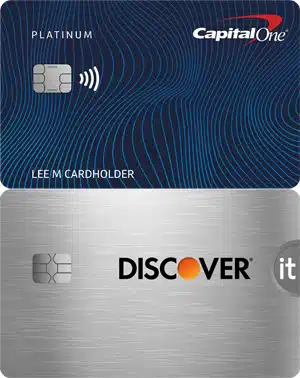(Editor’s Note: This story follows up on news late Monday concerning a planned acquisition of Discover Financial Services by Capital One Financial Corp.) On the Tuesday morning after news broke that credit card giant Capital One Corp. intends to shell out $35.3 billion in an all-stock deal to acquire Discover Financial Services Inc., Cap One’s top brass laid out its view of the assets it’s targeting. Chief among them: Discover’s debit network, which goes by the Pulse brand.
Of all Discover’s properties, “the debit network is the most developed [asset] of all because they have the Pulse network, with 4,500 banks,” Cap One’s long-time chief executive, Richard Fairbank, said during a conference call held to discuss the proposed merger. “We believe that’s the place to make a significant move.”

The “move” he was referring to is the bank’s decision, he said, to “move all of our debit business” to Discover’s debit platform after the deal closes, an event the bank expects to arrive by late this year or early 2025.
Fairbank on the call referred to Discover’s $311-million acquisition in 2005 of Houston-based Pulse, one of the country’s largest PIN debit systems, as “brilliant.” With that asset now in its fold, he added, Cap One will be able to deal directly with merchants for both credit and debit acceptance. That capability, he said, “creates more value” for Cap One, the nation’s ninth-largest bank.
Together with Discover’s credit card network, the move to buy Discover “propels Capital One into the global payment-network space, something that’s nearly impossible to achieve organically,” Fairbank said. It also achieves a long-time goal for McLean, Va.-based Cap One. “The holy grail,” he noted, “is to be an issuer with our own network.” Like American Express but unlike Visa and Mastercard, Discover operates as both a card issuer and network operator.
Once the deal closes, Cap One’s intention now is to move all of its debit portfolio to Discover in an effort to bulk up the latter’s scale, Fairbank said, though he added the company will move over only part of its credit card business “to enhance [Discover’s] scale over time.” This move, he said, will take place in 2027 and will involve 25 million cards carrying $175 billion in purchase volume.
“This give us an opportunity to scale at a very rapid pace, much more than we could organically. To bring these two [companies] together creates a really great opportunity,” noted Michael Rhodes, whom the Discover board picked in December to be the company’s new chief executive. Rhodes succeeded interim CEO John Owen, who in turn took over in August from long-time chief Roger Hochschild following news that the network had been overcharging some merchants and acquirers for transaction processing.
Fairbank called out a pricing advantage of the planned move into debit. Discover, like American Express Co. but unlike Mastercard and Visa, deals directly with merchants and issues its own cards, a key difference Fairbank said will protect the network he’s building from the 13-year-old Durbin Amendment rules that limit debit interchange. “Discover is both a network and an issuer,” he noted. “The Durbin debit rules were written explicitly to exclude networks like Discover and American Express.”







